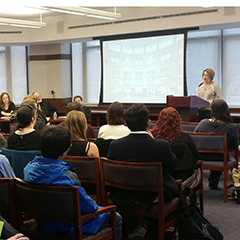GSAS Self-Care Resources

Graduate study is, by design, very hard work. Mastering – and innovating on – your field of study while training to become an exceptionally competent and skilled professional may constitute one of your life’s most significant challenges. For all of the rewards that graduate study offers, it also involves a rigorous and protracted process that may sometimes deplete you of your physical and emotional energy. Completing a graduate degree in a healthy and rounded way is as important (if not more so!) as applying hard work and a strategic mindset to achieving your academic and professional goals.
If you find yourself struggling with any aspect of your graduate experience, know that you are not alone. There are many other students who are on a similar journey as you are with all of its exhilarating ups and disappointing downs. As you collect data, conduct experiments, visit archives, apply for opportunities, and write papers you may find that failure in the form of rejection, negative feedback, slowed progress, or poor marks may accompany some aspect of your graduate career. Keep in mind that failure is a necessary prerequisite to success.
Developing both a resilient attitude and maintaining good communication about your progress with your faculty mentors (alongside of supportive colleagues, friends and family members) will help to ease the burden of setbacks and to re-establish a plan to move forward in the inherently “messy and iterative” – as the UCSF MIND program suggests – rather than “smooth and linear,” process of successful degree completion and professional development.
Consider applying the “Five F’s” of family, fitness, finances, fulfillment and fun to your everyday routine to maintain your well-being as you move through your graduate experience. They will help to ground you in the fact that who you are, and the whole of your life experience, is equal to your identity as a researcher, educator, and professional.
Developing a balance between the demands of your academic studies and other areas of your life is not easy, and there is no perfect way of going about it. Nevertheless, take time to acknowledge and celebrate small victories in your efforts to honor and care for yourself as much as you would (and should!) celebrate academic and professional success.
Below are wellness resources that apply to many graduate students’ experiences. For additional support, please also consider reaching out to the Office of Counseling and Psychological Services with a supportive staff on hand that is ready to assist you.
Additional Wellness Resources: